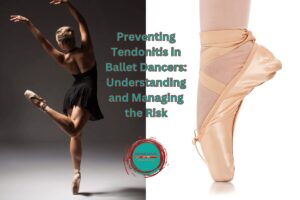This week (18th-24th Sept 2017) is Balance Awareness Week.
 Balance is defined as an even distribution of weight enabling someone or something to remain upright and steady. If someone has an impairment in their balance systems this may result in a fall and subsequent injury. The ability to balance is the result of the interplay of numerous systems.
Balance is defined as an even distribution of weight enabling someone or something to remain upright and steady. If someone has an impairment in their balance systems this may result in a fall and subsequent injury. The ability to balance is the result of the interplay of numerous systems.
These include:
- Nervous system- Brain, spinal cord, nerves, and sensory organs
- Muscular system- muscles and soft tissue
- Skeletal system- Bones and joints
The vestibular system has an important role in maintaining balance. It provides information to the brain about equilibrium, motion, and spatial orientation. It is located in the inner ear, with some organs monitoring/controlling vertical orientation and linear movement (for example looking up and down), and others which detect rotational movements (turning the head side to side).
Dysfunctions of the vestibular system can be the result of illness, injury, drug or chemical poisoning, auto-immune disorders and aging. Symptoms may include dizziness, vertigo (illusion of movement), loss of balance, tinnitus (ringing in the ears), and nausea/vomiting.
Two common conditions affecting the vestibular system are Ménière’s disease and Benign Paroxysmal Positional Vertigo (BPPV).
 Ménière’s disease affects both the vestibular system and auditory (hearing) system. Symptoms include vertigo (sometimes nausea and vomiting), tinnitus and hearing loss. The problem can be persistent for years. Management includes life style changes to reduce triggers such as avoiding stress, bright lights and alcohol. Specific medications can help as well as anti-sickness tablets.
Ménière’s disease affects both the vestibular system and auditory (hearing) system. Symptoms include vertigo (sometimes nausea and vomiting), tinnitus and hearing loss. The problem can be persistent for years. Management includes life style changes to reduce triggers such as avoiding stress, bright lights and alcohol. Specific medications can help as well as anti-sickness tablets.
Specific exercises taught by a specialist physiotherapist can be helpful. Vestibular rehabilitation exercises retrain the organs that control balance, and can also stimulate the sensation of dizziness so the brain learns how to cope better (and is less sensitive) to it. Vestibular rehabilitation may also include general strength and fitness and offer advice on how to walk safely.
BPPV is the commonest cause of vertigo. It is caused when loose chalk crystals get into the wrong part of the inner ear. Symptoms are classically elicited when lying flat, sitting up from lying flat; turning over in bed and looking up or bending down. It can often be successfully treated in one or two treatments by using repositioning techniques performed by a specialist physiotherapist such as the Epley Manoeuvre.
For a vestibular assessment, contact us at the Chancery Lane clinic or The Hospital of St John and St Elizabeth, where specially trained physiotherapists Hayley Dalton and Kieran O’Dea will be happy to see you.
For more information on vestibular conditions or how to get involved in Balance Awareness Week, visit: http://vestibular.org/

 Balance is defined as an even distribution of weight enabling someone or something to remain upright and steady. If someone has an impairment in their balance systems this may result in a fall and subsequent injury. The ability to balance is the result of the interplay of numerous systems.
Balance is defined as an even distribution of weight enabling someone or something to remain upright and steady. If someone has an impairment in their balance systems this may result in a fall and subsequent injury. The ability to balance is the result of the interplay of numerous systems.


Comments